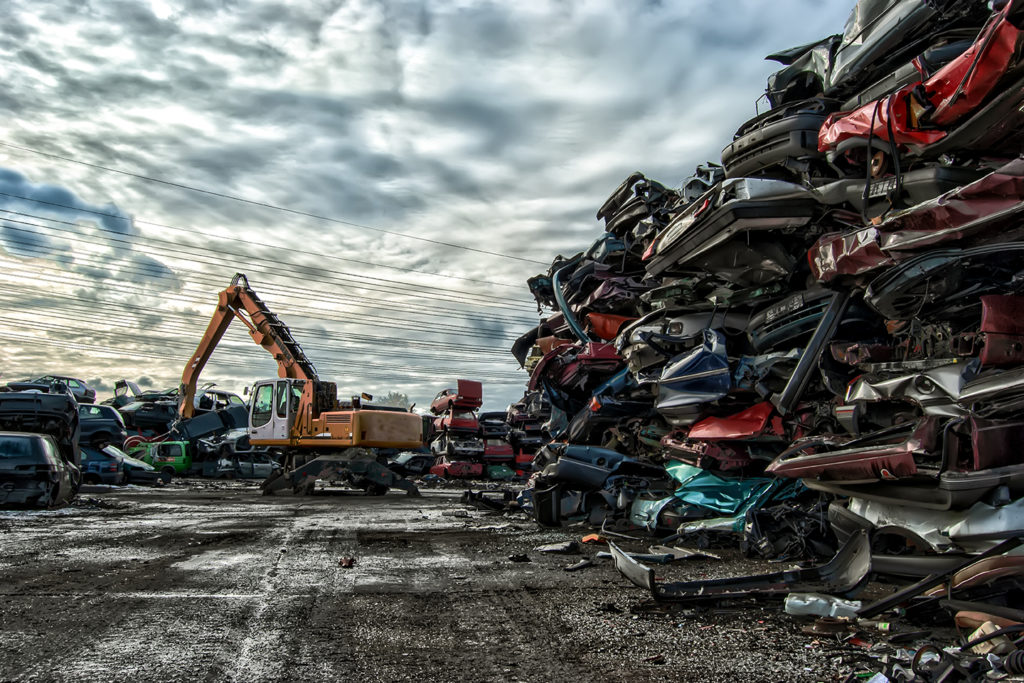The motor trade industry has been hit as hard by the Covid-19 crisis as nearly any other in the UK. Year on year sales of new cars were down by nearly 90% in May. As the severe affects are likely to hit jobs hard there are growing calls for the Government to attempt to help by introducing a new scrappage scheme.
In the April 2009 budget, the then Labour government announced its car scrappage scheme. The Treasury contributed £1,000 which was matched by manufacturers. The aim was to stimulate the motor industry and help ease the impact of the deep recession that the country found itself in. 10 years later, with an even more severe recession looming another scrappage scheme is being touted by the Society of Motor Manufacturers (SMMT) and other industry bodies.
In its year long duration, the last scrappage incentive resulted in 392,227 cars finding themselves laid to rest in UK scrapyards. The boost in sales mainly benefitted lower cost, smaller models with the likes of Hyundai and Kia proving popular. Many within the motor trade industry are hoping for a similar initiative to be rolled out but the sounds coming from the corridors of power are that, if one is created, it could be significantly different to the previous scheme.
What Vehicles Could Be Eligible to buy on the Scrappage Scheme?
With Government emission targets also a priority there is talk that the funding will only available for the purchase of electric and hybrid vehicles. However the SMMT are pushing for it to include the sale of petrol and diesel cars as carmakers and dealers will need to sell a back log of petrol and diesel stock.
Though representatives of the vehicle leasing industry have encouraged ministers to support an electric scheme. Shareholders of many leasing companies that operate large fleets are facing increased pressure to invest in zero-carbon technology in order to address environmental concerns.
How Much Funding Will the Scrappage Scheme Offer?
A contribution of £6,000 is being suggested for a trade in of a vehicle over 10 years of age, so long as it’s in exchange for an electric vehicle. Though many experts are highlighting that due to the increased values of electric vehicles this figure might not be enough to encourage consumers into the market. Despite their increased popularity EV’s still only account for 1.6% of 2019’s new car market.
Why Wouldn’t the Government Back a New Scrappage Scheme?
Chancellor Rishi Sunak may be holding off on giving the scheme the go ahead on the basis of information from the Institute for Fiscal Studies (IFS). The independent think tank has suggested that the benefit of the original scrappage scheme to the UK economy was limited at best. It argues consumers that utilised the scheme would have made their purchases in any case, and the rush caused by the incentive resulted in reduced sales in following years.
The Government may also be concerned about the potential from other industries that so much funding will be directed to one sector. Also with UK motor brands such as Jaguar Range Rover, Bentley, Rolls-Royce and Aston Martin being concentrated in the high value segment of the market, a small cash contribution is likely to have a limited impact for our own vehicle manufacturers. After all, the majority of midrange value based marques produced by the like of Nissan on our shores are subsequently exported to Europe.
When will we find out about a new scrappage scheme and how likely is it?
The likelihood is that the Prime Minister will use a scheduled speech regarding the state of and future plans for the economy on July 6th to outline details of a scrappage scheme if one is to be introduced.
Transport Secretary Grant Shapps has indicated that the ban on the sale of new fossil fuelled and hybrid vehicles could potentially be moved from 2040 to 2032 in order to hit carbon reduction targets. So an EV only scrappage scheme would certainly represent a piece of joined up thinking from the Prime Minister’s cabinet. However there are no guarantees as journalists appear to be receiving mixed messages on the subject from officials, suggesting that all concerned in the decision making process are not in agreement.
If the scheme is released then it could potentially help both the economy and air quality. Though with electric infrastructure still some way behind vehicle technology, in our opinion it would make sense for the scope of the scheme to also include fossil fuelled vehicles that perform strongly on emissions. Doing so would help clear forecourts of backed up stock whilst accelerating the removal of older, less energy efficient vehicles that contribute disproportionately to pollution levels.
Find out why 96% of our customers have rated us 4 stars or higher by reading our reviews on Feefo.


